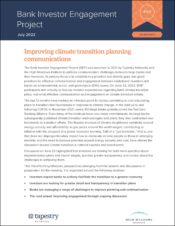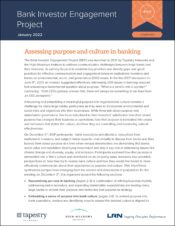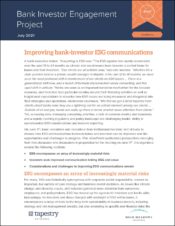The Institutional Investor Industry Engagement (IIIE) Project is designed to accelerate sustainability practices within industries by improving communication between institutional investors concerned with sustainability integration and the companies and industries they invest in.
Efficient communication between institutional investors and companies on ESG issues is currently hampered by several factors. These include:
- Lack of alignment and constructive dialogue with investors around the most material ESG issues. This is further complicated by the lack of industry normative standards and the many competing frameworks and standards on ESG currently in use, the vast majority of which do not focus on material factors of concern to investors
- Fatigue over proliferation of surveys and questionnaires from rating companies, at times promulgating inaccurate information
- Lack of capacity of most large institutional investors, particularly index investors, to communicate and engage beyond a small group of individual companies in their portfolio. This is also the case in collaborative engagements when groups of institutional investors come together. The focus is usually on a few companies rather than an entire industry.
To address this challenge, the IIIE Project’s goal is to bring together leading institutional investors with leading companies within in a specific industry and, as appropriate, their industry associations, to develop a shared, forward-looking understanding of the future of the industry and the sustainability challenges it may face. Working from this analysis, the objective is to develop a practical and efficient framework for companies to communicate with investors on ESG integration and performance.
A secondary objective is to explore the potential for institutional investors to support leading firms in addressing “first mover” ESG issues for the industry. Unlike general governance issues such as board diversity, social and environmental issues tend to be context- and industry-specific (for example, deforestation and real estate, water and food & beverage, etc.). Not only is it difficult for individual companies to tackle these issues alone, but the costs incurred in doing so individually can put them at a competitive disadvantage with peers who are not equally engaged.












